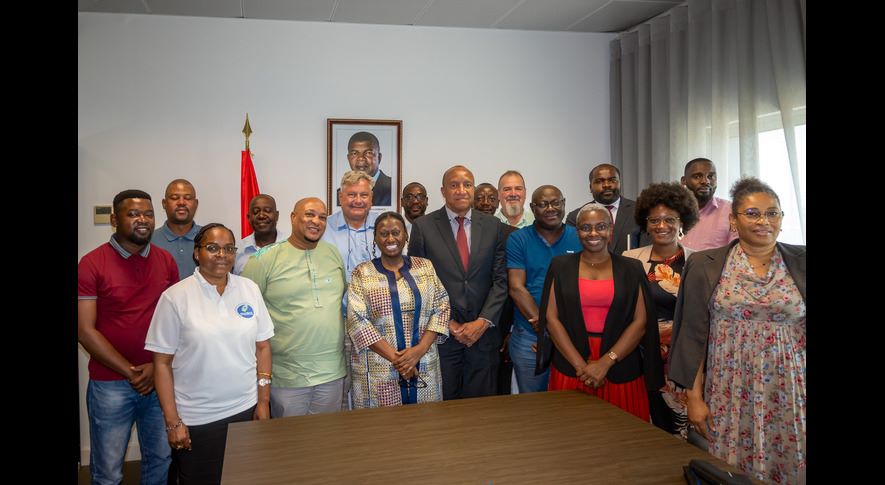
February 2024 — Per Erik Bergh (CEO and Managing Director), JD Kotze (Investigator) and Andréa Durighello (Fisheries Expert) travelled to Angola as part of a delegation representing the project SADC Atlantic to launch the activities of the project in the country. They joined representatives from the Interim Project Management Unit (IPMU) of the SADC Fisheries Monitoring, Control and Surveillance Coordination Centre (MCSCC), the SADC Secretariat and the Benguela Current Convention, as well as the current Chair of the SADC MCSCC.
The SADC Atlantic project was officially launched on 20 February 2024 in Luanda, under the patronage of the Angolan Minister for Fisheries and Marine Resources, H.E. Carmen dos Santos and with the participation of the US Embassy in Luanda. In her welcome remarks, the Minister highlighted the critical need to fight IUU fishing in national waters and reiterated the commitment of Angola to strong regional and global cooperation against this global threat.
Strengthening regional cooperation through the MCSCC is one of the key objectives of the SADC Atlantic project. Speaking at the launch ceremony, SADC Technical Advisor and Head, Dr. Motseki Hlatshwayo, reemphasised the potential that the MCSCC is offering to Angola and the other SADC countries to work together to protect the region’s fisheries. The power of regional cooperation was amongst the key messages of the risk assessment trainings that SIF conducted in Luanda and Lobito with the IPMU, directly after the project launch.
These two initial trainings focused on providing MCS officers in Luanda and Lobito with an overview of instruments and techniques that are available to them to assess risks of fishing vessels coming to their waters, and to verify those risks. These sessions will be followed by close coaching and mentoring, to build the capacity of MCS officers to implement those tools and integrate them into their procedures, aligned with the needs expressed during the trainings. Mentoring will also include support to the conduct of inspections, which will be facilitated by the use of two body-worn cameras granted by Stop Illegal Fishing to the Ministry under the SADC Atlantic project.